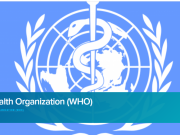The World Health Organization is renowned for being anti-vaping. Last October, public health experts at the organization’s biennial conference FCTC COP8, were left disappointed as the WHO still failed to take into account scientific data in favour of e-cigarettes for harm reduction, and commended countries who have implemented unreasonable vaping bans.
The experts pointed out that this is ironic, as the WHO endorses harm reduction in principle, and yet keeps ignoring an international treaty which approves these lower harm alternatives to smoking.
What does science indicate about smoking cessation via e-cigarettes?
Earlier this week, the organization’s representative to the Philippines Dr. Gundo Weiler, wrongly stated that there are still no definitive findings in relation to e-cigarettes. “There are also claims that e-cigarettes lead to reduction in smoking. It is not so clear at this point whether indeed along the line people will have less consumption of tobacco because of those products,” he said.
“They might stop, but they may also start using that, and then later switch to tobacco use. There are a lot of factors. So far, we have not yet completed the determination exactly what are their health effects because these are products that have never been used before,” added Weiler.
In the meantime, studies around the globe keep indicating that e-cigarettes are the most effective smoking cessation tools to date. Additionally, a Public Health England (PHE), evidence report released earlier this year which updated the organization’s 2015 vaping report, confirmed that vaping is at least 95% safer than smoking.
Read Further: Manila Bulletin













